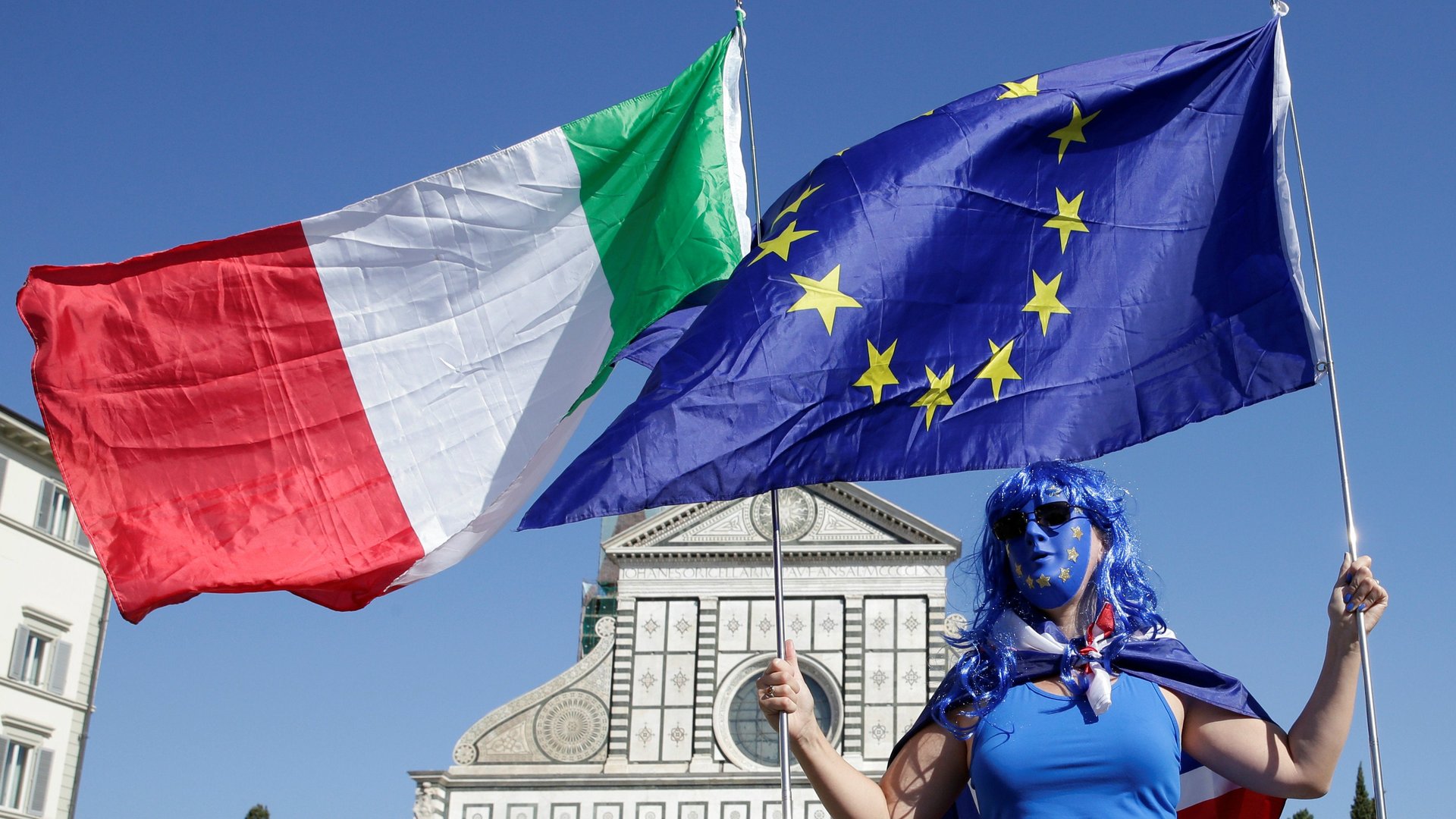A quick guide to Italy’s upcoming general election
After momentous, close-run elections in Germany, France, and the UK this year, Europe will face another nail-biting vote early next year in Italy, the region’s fourth-largest economy. Italy will hold a general election on March 4, according to reports in the country’s largest newspapers. The parliament’s current five-year term runs out in May.


After momentous, close-run elections in Germany, France, and the UK this year, Europe will face another nail-biting vote early next year in Italy, the region’s fourth-largest economy. Italy will hold a general election on March 4, according to reports in the country’s largest newspapers. The parliament’s current five-year term runs out in May.
After populist parties made gains but fell short of power in Europe’s other large economies, recent polls and local election results suggest that Italy’s Northern League, an anti-EU and anti-immigrant party, has a shot at governing in a coalition with the center-right Forza Italia party, which is backed by ex-premier Silvio Berlusconi.
But whoever prevails will have a tough time breaking out of economic stagnation, reducing daunting debts, and dealing with a deeply troubled banking system. The high odds of a hung parliament could add to the instability.
Who’s leading the polls?
Far-right parties have been gaining steam recently. Last month, the alliance Berlusconi backs won with 40% of the vote in Sicily’s local elections, propelling Nello Musumeci to the local presidency. That was ahead of the anti-establishment Five Star Movement and the governing center-left Democratic Party, led by former prime minister Matteo Renzi.
The Sicilian elections put a dent in the Democratic Party’s popularity nationally, and it is currently running in third place in opinion polls, behind Five Star and the right-leaning parties (Forza Italia, Northern League, and Brothers of Italy) that form Berlusconi’s alliance. A hung parliament seems likely, with tricky coalition talks to follow.
Berlusconi was expelled from Italy’s parliament in 2013, after being convicted of tax fraud. He is currently appealing to the European Court of Human Rights to have that ban overturned.
What are the biggest issues?
Italy faces a host of economic problems that have weighed on the country for years. HSBC recently dubbed Italy “the problem kid” of Europe, saying 2018 was a critical year for the country and the continent as a whole.
Italy’s budget law for 2018 is supposed to lower its persistent deficits, but time is running out for parliament to pass it by the end of the year. Meanwhile, the country’s banking sector is still shaky (paywall), even after the government has intervened to stop Italy’s oldest bank, Monte dei Paschi di Siena, from collapsing.
The country has the second-highest debt load in the euro area, after Greece, at 135% of GDP. This makes it vulnerable to higher borrowing costs as the European Central Bank reduces its stimulus and considers, eventually, raising interest rates down the line.
In the past, both Five Star and some far-right parties have suggested that Italy should hold a referendum on its membership in the euro zone. Their positions on this are not as clear now, but if either come close to taking power it could stoke concerns among investors about the sustainability of Italy’s debt pile and its prospects for economic recovery after years of stagnation.